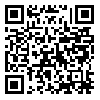Volume 1, Issue 1 (10-2002)
Research on Addiction 2002, 1(1): 0-0 |
Back to browse issues page
Download citation:
BibTeX | RIS | EndNote | Medlars | ProCite | Reference Manager | RefWorks
Send citation to:



BibTeX | RIS | EndNote | Medlars | ProCite | Reference Manager | RefWorks
Send citation to:
Ghorbani M. A Study With Special Emphasis On Applying Motivational Interviewing As a Clinical Approach to Change Addictive Behavior of Drug Abusers in Iran. Research on Addiction 2002; 1 (1)
URL: http://etiadpajohi.ir/article-1-497-en.html
URL: http://etiadpajohi.ir/article-1-497-en.html
Abstract: (26298 Views)
Any attempt in the area of substance abuse treatment without paying especial attention to client motivation has often been regarded as failure. It is now widely acknowledged that Motivation is a crucial component of behavior change, especially so in the area of addictive behavior. It is commonly believed that addicts show specific internal and enduring personality charasteristics such as lack of motivation to change, and the use of defense mechanisms such as denial, projection and rationalization wich is often believed to prevent addicts from recognizing their Problem. Miller and Rollnick (1991)by reffering to this as “ ambivalence about change “, argue that (MI) is an approach to help chlients resolve this ambivalence .
(MI) views motivation as a fluctuating state of readiness to consider changing a behavior. They define (MI) as a directive, client – contered couselling style for helping addicts explore and resolve the ambivalence about changing addictive behaviour .
Prochaska and DiClemente (1984) have offered a comprehensive cognitive – behavioural outpatient counseling approach for substance abusers. This program includes six components: 1-precontemplation, 2-contemplation, 3- preparation, 4- action, 5- maintenance, and 6-relapse.
The goals of present article are three – fold:
In the first step, it introduces a brief form of motivational Interviewing for addictive behaviors. Its primary basis is the idea that most substance abusers seek medical treatment without being ready to change addictive behaviors. As a result, attempts the addicts to change often lead to their resistance. Therefore, the use of motivational interviewing (MI) in which clients are directed towards realizing their own reasons and arguments for changing their behavior, seems to be most oppropriate to motivate and prepare them for change. In the second step, the article tries to discuss advantages of motivational interviewing approach to often opproaches (e.g, skills training approach, Indirect approach and confrontational – denial approach) and suggests that (MI) is the most appropriate strategy for the substance abusers, according to their degree of readiness for change. Finally in the third step, the article attempts to indicate the current dominant strategies of addiction treatment in Iran and concludes that due to dominance and commonality of medicine – based treatment strategies of addictive behaviors, (MI) could be introduced as an alternative and appropriate treatment strategy for drug addicts in Iran.
Keywords: Motivational Interviewing, Ambivalence, State of Readiness, Client, Addictive Behavior, Behavior Change, Substance Abuse Treatment.
Type of Study: Research |
Subject:
General
Received: 2014/06/16 | Accepted: 2014/06/16 | Published: 2014/06/16
Received: 2014/06/16 | Accepted: 2014/06/16 | Published: 2014/06/16
| Rights and permissions | |
 |
This work is licensed under a Creative Commons Attribution-NonCommercial 4.0 International License. |





